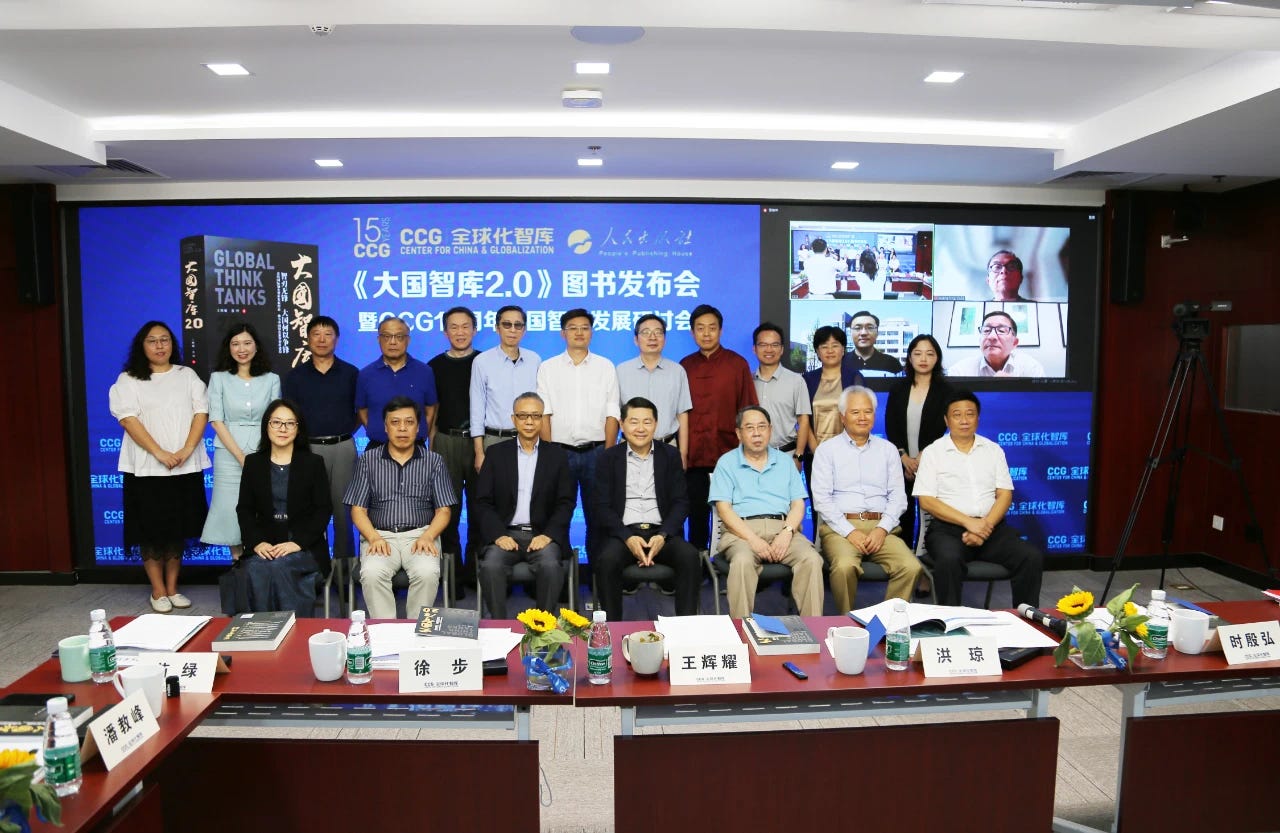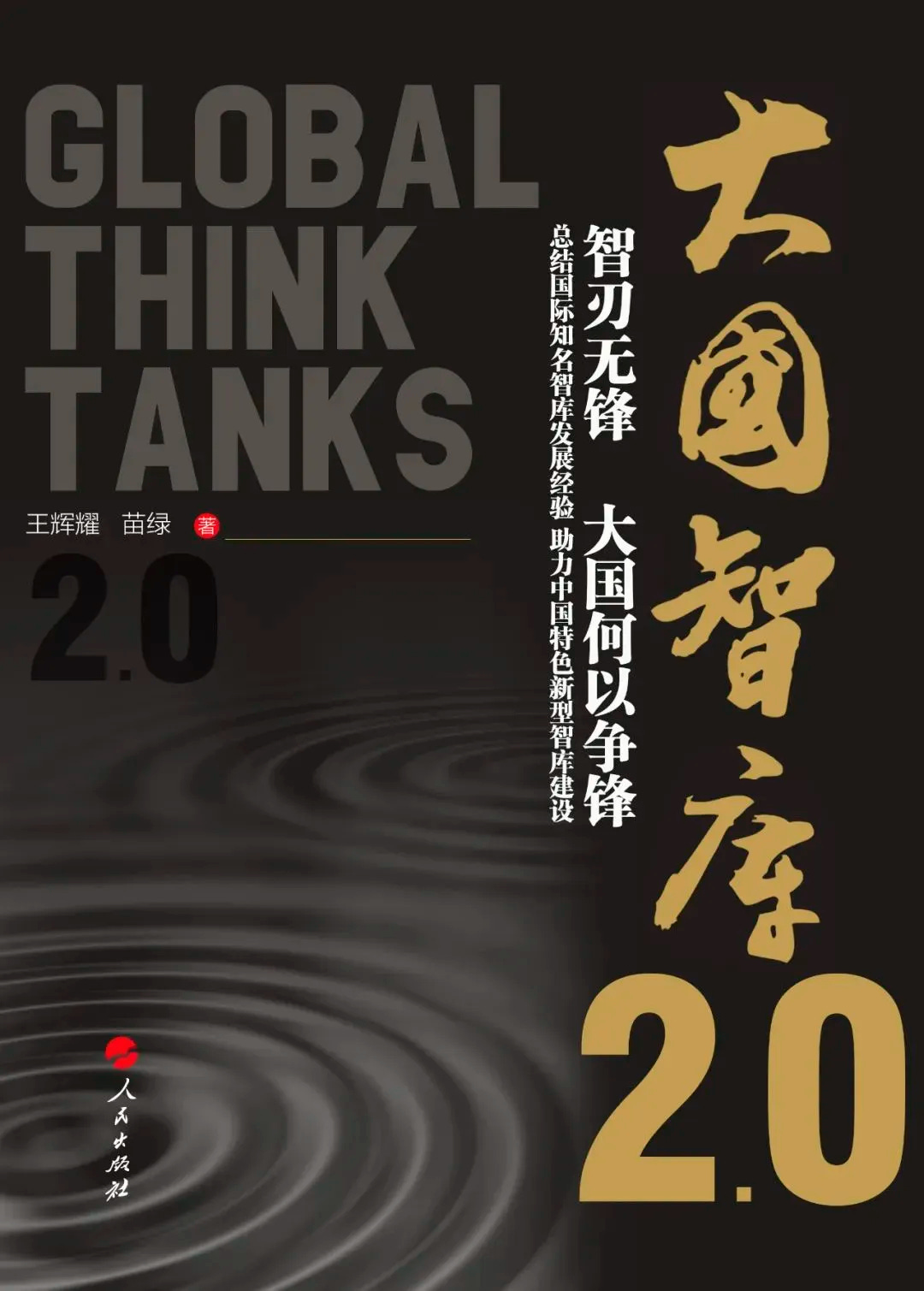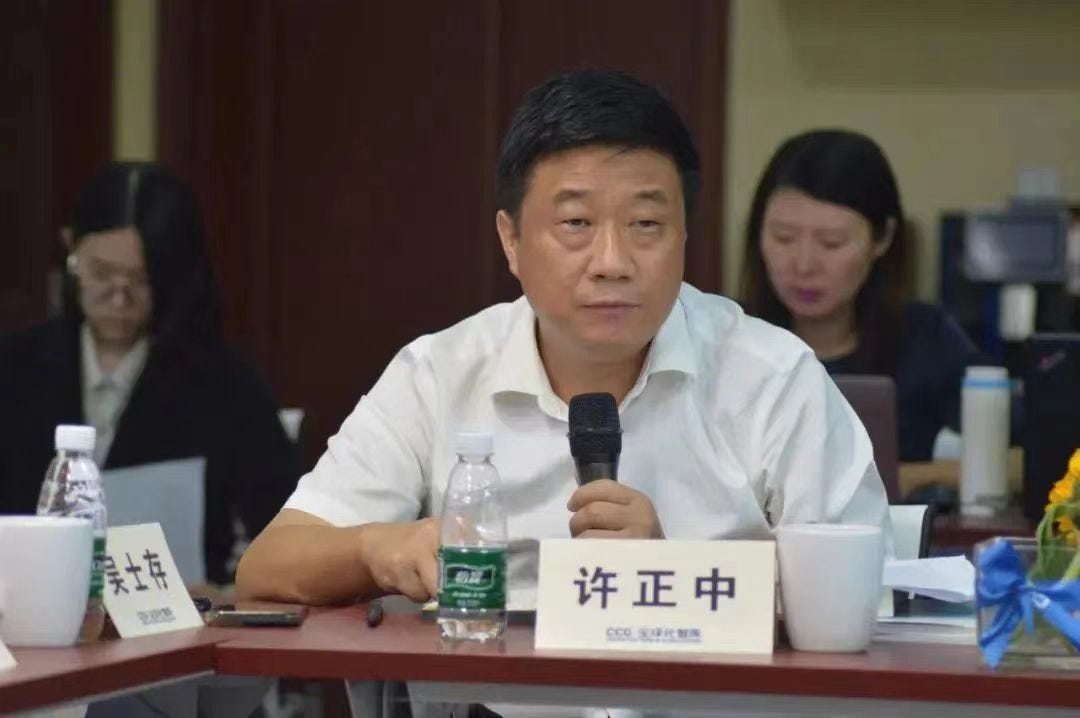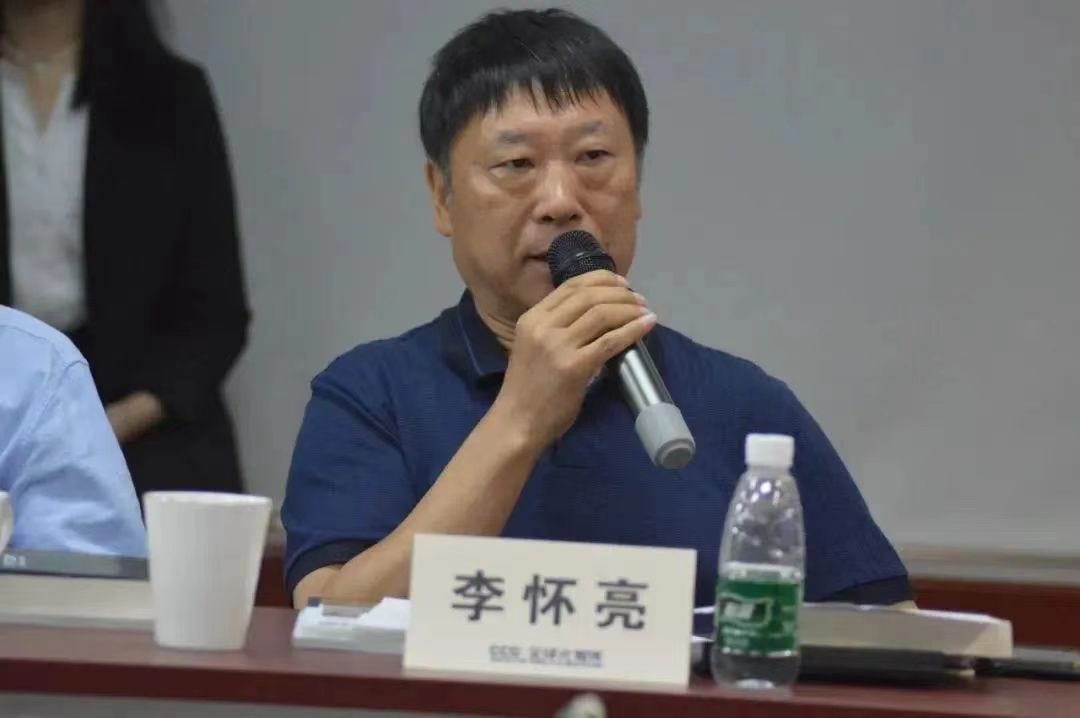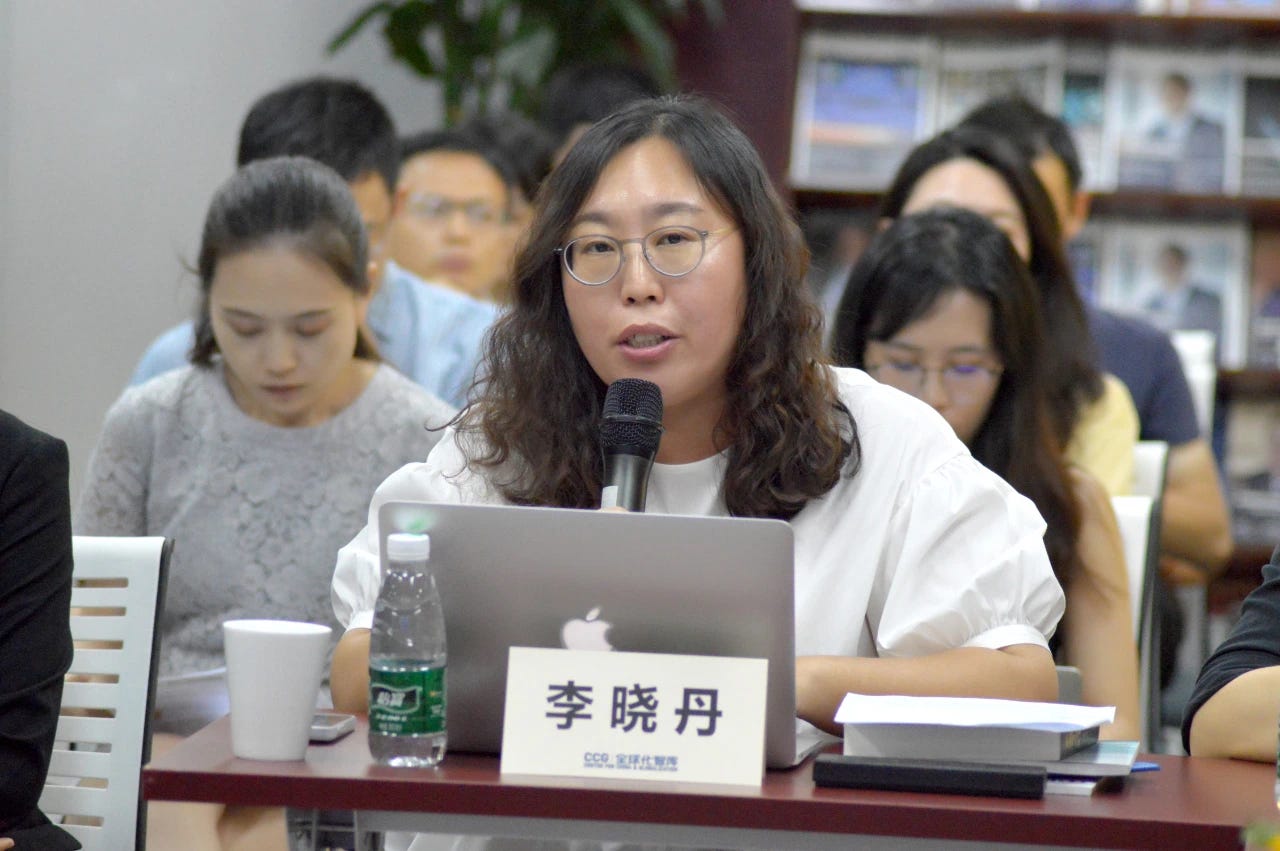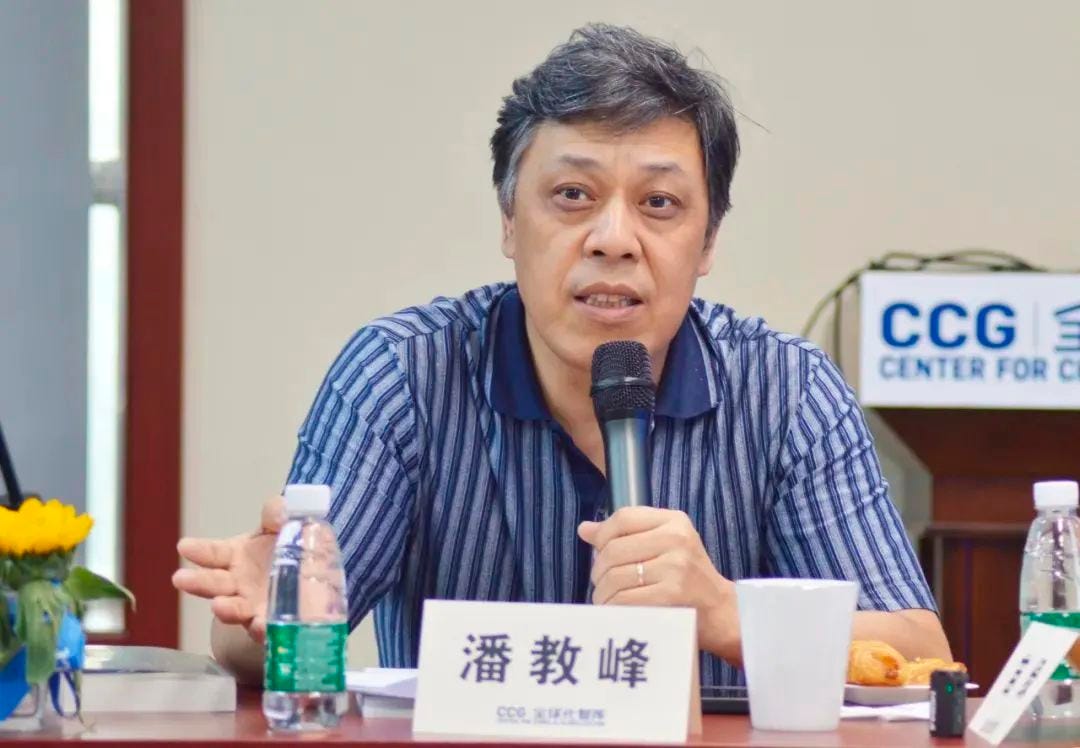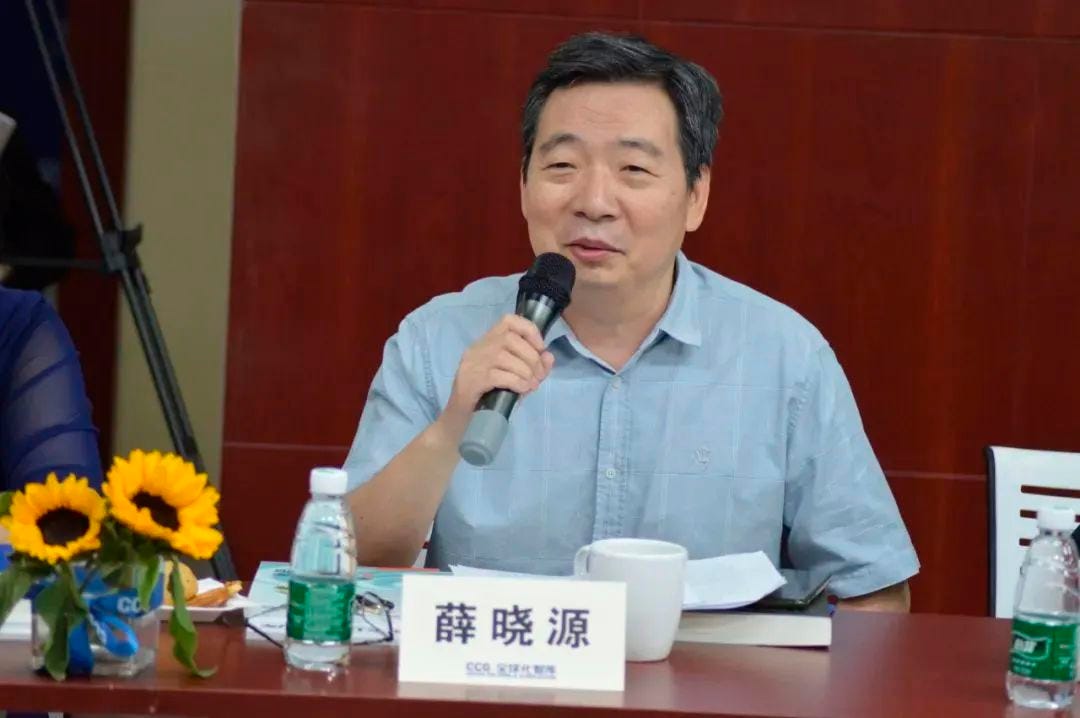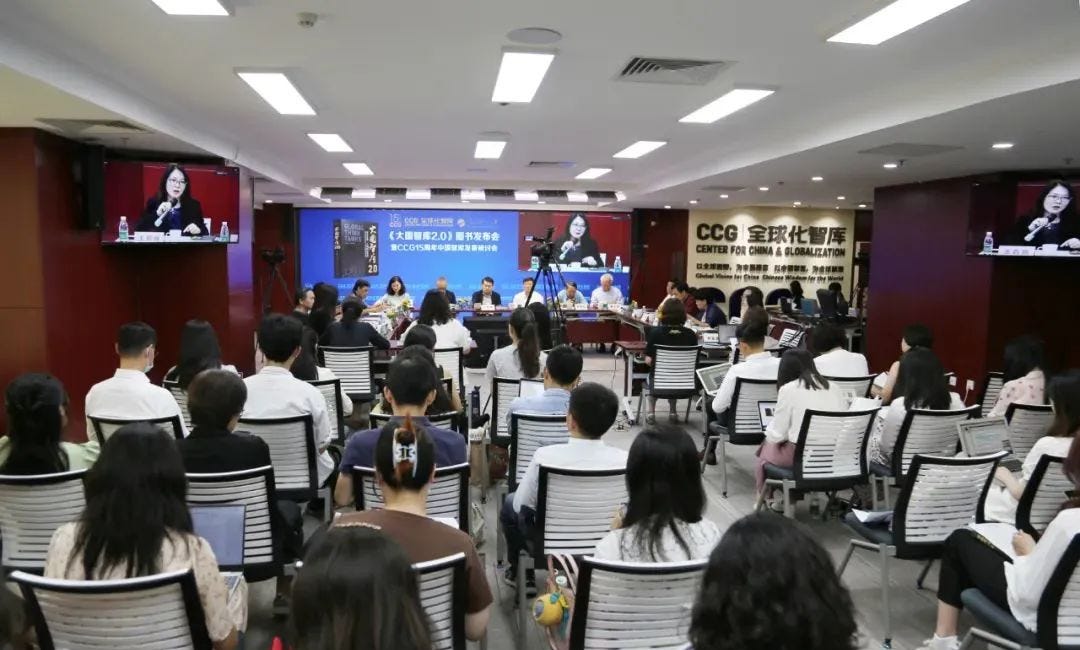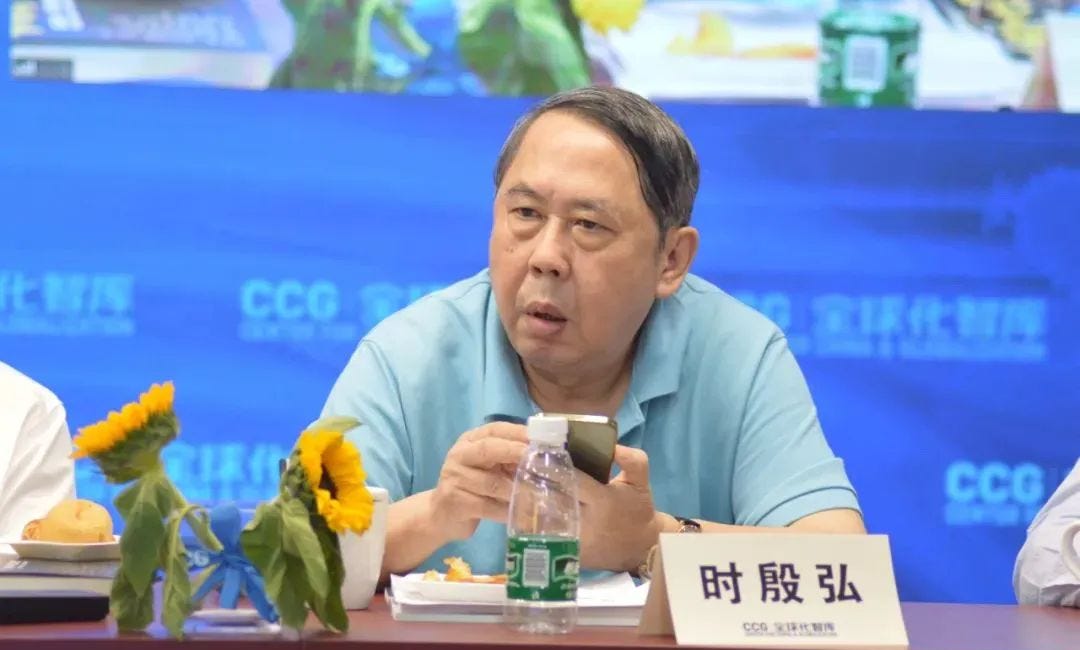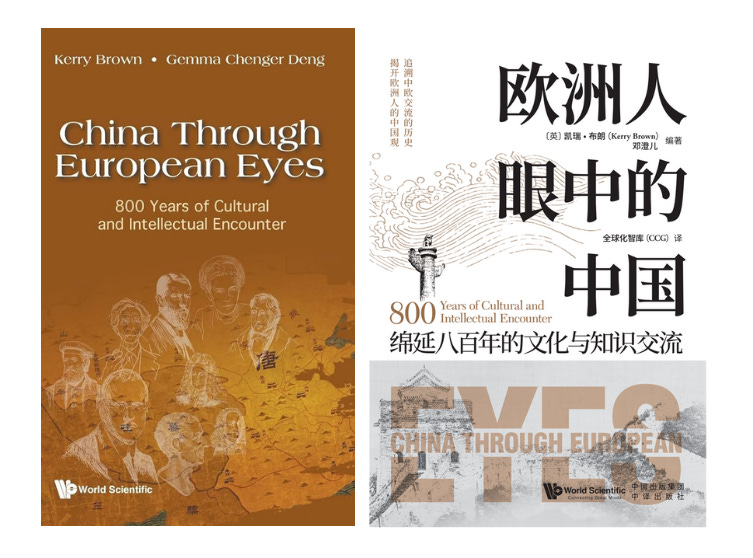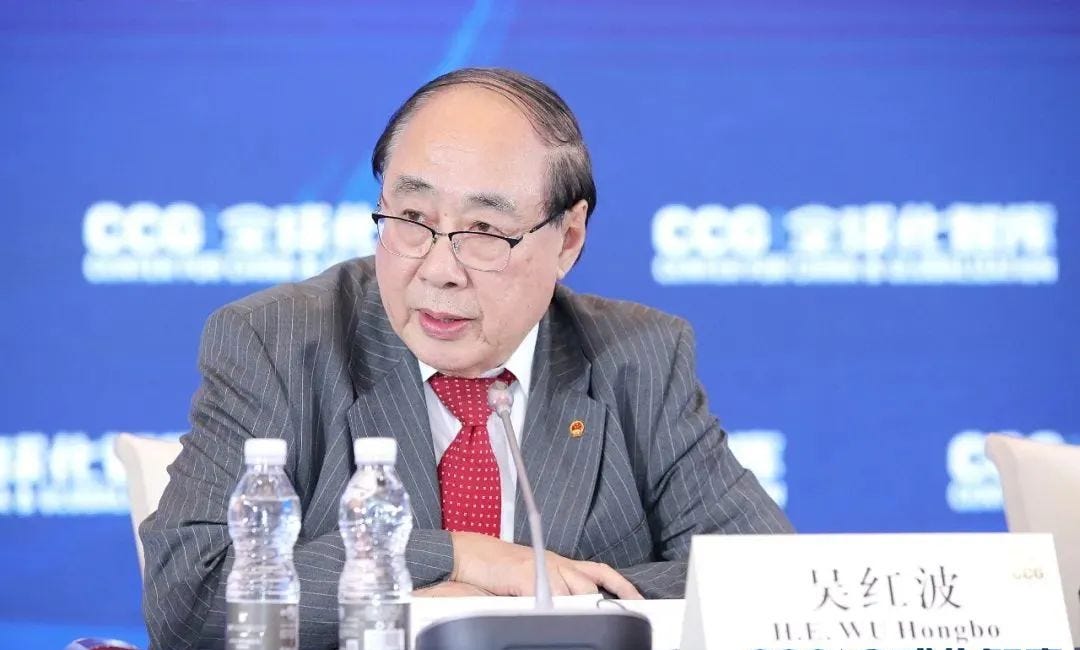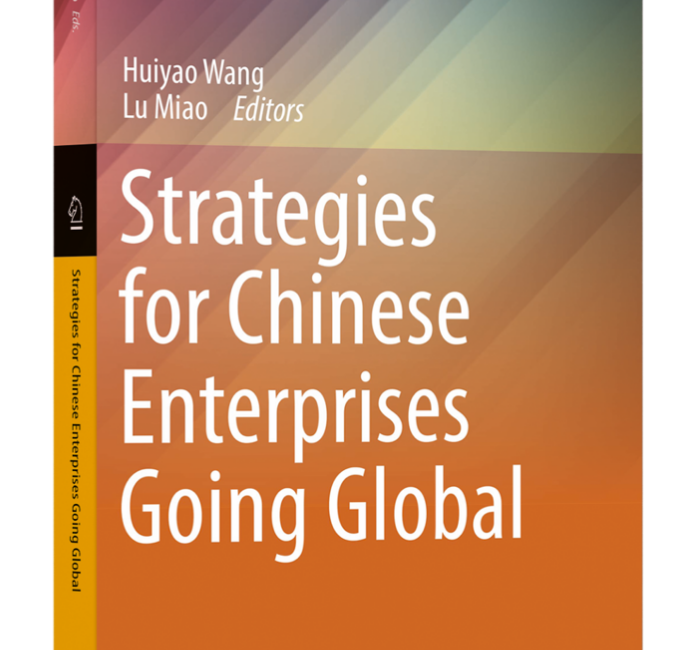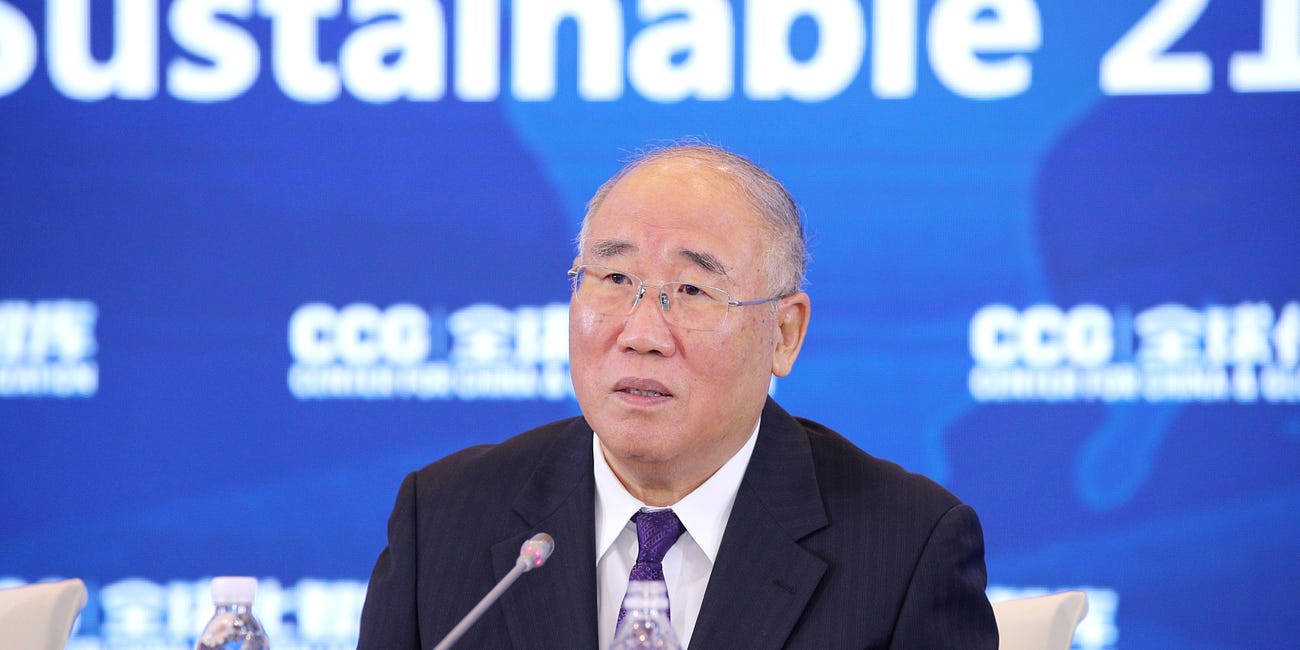Navigating digital age: the imperative of intellectual output for China's think tanks
Experts believe that only "idea producers" will survive in the digital civilization, and the crux of think tank competitiveness may lie in strategic communication and intellectual output.
At a seminar that convened over a dozen of China's foremost intellectual minds within the think tank realm, experts emphasized the need for vibrant idea generation, further opening up of China's intellectual market, internal restructuring, and addressing talent shortages in the digital age.
This is the last of three episodes covering the book release of Global Think Tanks (2.0), written by CCG and published by the People's Publishing House. The first and second posts have already been published on CCG Update.
The book explores the roles, obstacles, and prospects of Chinese think tanks within the intricate global landscape. The event, which took place on August 18, 2023, was organized by CCG and featured a seminar attended by prominent figures from Chinese think tanks.
During the seminar, Xu Zhengzhong, Deputy Dean of the Institute for International Strategic Studies in Central Party School (China National Academy of Governance), emphasized the role of "idea producers" in the digital age, a notion echoed by Li Huailiang, professor in International Cultural Trade and the Dean of the Institute for a Community with Shared Future (ICSF) at Communication University of China (CUC), who called for a more vibrant intellectual market in China.
Li Xiaodan, Executive Dean of the Macroeconomic Research Institute of Economic Observer, highlighted the importance of think tanks in providing novel perspectives for businesses, industries, and macro policies. Pan Jiaofeng, President of Institutes of Science and Development, Chinese Academy of Sciences (CASISD), Chairman of Chinese Association of Development Strategy Studies, stressed the need for Chinese think tanks to enhance their output quality, commence internal restructuring, and address talent shortages. Xue Xiaoyuan, Executive Dean of Research Institute for Globalization and Cultural Development Strategies of Beijing Normal University, reiterated the significance of digital globalization in the discussion.
Xu Zhengzhong, Deputy Dean of the Institute for International Strategic Studies in Central Party School (China National Academy of Governance)
Thank you very much for CCG's invitation. Huiyao and I have been old friends for many years. However, I'm not as consistent as all of you. While many of you come frequently, I come on and off. First of all, congratulations on the publication of "Gloal Think Tanks 2.0". Especially in the 2.0 edition, there are specific interviews with more than 50 think tanks, which is very important. In today's world, documenting history is equivalent to creating history. I've also visited no fewer than 50 think tanks, but I never imagined they would be compiled into a book. I'm also very grateful to Dean Xu Bu. Last time I held a seminar on global civilization innovation and cooperation at their place. After returning, I organized my notes and published a book titled "Digital Civilization". I didn't bring it today. I didn't know how many people would come, and I also didn't check the details; I just read the invitation you sent me and knew I had to ask for leave. Collective intelligence – this is something we've all noticed. For a think tank named after globalization, its main focus, as evident from seeing Huiyao Wang and Lv Miao, has always been on the world's issues and our responses to them, making it the key point and foundation of the think tank. This has been my impression of CCG over the years.
Based on these points, I have several remarks.
Firstly, the world is at a crucial stage of transition. Different people have developed different understandings. The main axis of this transition is the shift from industrial civilization to digital civilization. This year, I published a book named "Digital Civilization" at the Chinese Academy of Social Sciences. The most significant difference between digital and industrial civilizations is that while industrial civilization replaced agricultural civilization by substituting repetitive physical labor, digital civilization replaces industrial civilization by substituting repetitive intellectual labor. In the future, perhaps all of our endeavors will seem in vain, and only entities producing new ideas and strategies, like the 'idea factories' President Wang Huiyao mentioned, will remain. Other factories may vanish due to the overwhelming substitutes. I've been researching the digital economy, and in the age of digital civilization, uncertainty becomes a trend. The most important aspect of this uncertainty is the production of thought.
Secondly, the United Nations has made an assessment of recent conditions, concluding that while it was previously said the world is warming, it is now boiling. However, there is a definition in sociology which indicates we have entered the VUCA era: Volatility, Uncertainty, Complexity, and Ambiguity. In such times, the role of think tanks from major countries becomes even more pronounced. Whether we can reach a consensus in terms of thought and think tanks has become a global concern. I very much agree with what was said earlier, especially by Mable, who mentioned global public goods. Think tanks and ideas are indeed global public goods and play a vital role in global stability.
Thirdly, this is an era named by President Henry Wang as the "Think Tank Era." I'm trying to broach a topic here: why have humans entered this era? Essentially, humanity has entered a new developmental mode where think tanks lead, determine cognitions, resonate with acknowledgments, and set agendas. Only then do specifics follow. In the past, countries based their strategies on their development and proposed many crucial aspects. For instance, in this context, there are two main points: the determination of cognition and the setting of topics. Like the recognition that humanity has entered a new state of warfare called cognitive warfare. A difference in cognitive determination leads to different outcomes. Topic-setting is crucial. The book has discussed this, and as I mentioned earlier, President Xi proposed three initiatives that bring new hope and benchmarks to global stability: the Global Development Initiative, the Global Security Initiative, and the Global Civilization Initiative. I've seen that Dean Xu Bu has delved into the details, and it's done quite well.
Fourthly, strategic communication and intellectual output might be the most important leverage for think tanks' competitiveness. I have participated in several international strategic communications, which involved military personnel, businessmen, politicians, and university professors, belonging to different social strata. Only later did I realize that almost all expansion or rise among countries fundamentally starts with strategic communication. Nowadays, it seems everyone is focusing more on preparations, but strategic communication might be even more critical than the preparations.
In the end, our perspective aligns with Dean Pan's. The entire world is undergoing rapid technological iteration; it's too fast, and he is an authority in this field. Society is evolving and building upon itself. The industrial civilization has not receded, but the digital economy has arrived. Thoughts are surging, clashing, and merging. Globally, there's a state of cooperative competition where multiple parties can win, but there are also situations where cooperative competition doesn't lead to a win. During this process, I also hope to put forward a proposal to Wang Huiyao and Miao Lu. I eagerly await the release of Gloal Think Tanks 3.0. I hope that People's Publishing House not only sponsors but also expands its reach. I also hope that (CCG), which has been around for 15 years and has moved past its adolescent phase (and is no longer 'drooling'), will become a benchmark for our national think tanks and also serve as an exemplary model for world think tanks. Thank you.
Li Huailiang, Professor in International Cultural Trade and the Dean of the Institute for a Community with Shared Future (ICSF) at Communication University of China (CUC)
Thank you, thank you President Wang Huiyao and Secretary-General Miao Lu for the invitation, and congratulations on the publication of the new book, and congratulations on the outstanding achievements of CCG over the past 15 years. I have some understanding of CCG and sometimes wonder what is the reason behind its impressive development. What are the guiding principles, positioning, and philosophy behind the think tank that Mr. Wang Huiyao and his team are running? After reading some of the chapters, it seems I found an answer.
The positioning of the Brookings Institution in the US focuses on three main aspects: independence, both financial and intellectual; quality; and influence. Compared to the positioning of the Brookings Institution, what is CCG's own positioning? Here are my observations: CCG is a creator of intellectual viewpoints and value goals, a spokesperson for public interests, a bridge for communication between the government and the public, a haven for knowledge management and academic development, and an international platform for global exchange and cooperation.
After reading this book, I realized that CCG truly practices what it preaches. In the book, there's a concept that President Wang Huiyao also mentioned: "People-Centric Globalization". In terms of globalization, the Western concept of globalization is all-encompassing. The Chinese government has never advocated for excessive globalization; it has always emphasized economic globalization. Western globalization encompasses cultural and various ideological globalizations. The concept of "People-Centric Globalization人本全球化" proposed by CCG aligns with China's talent development, which is commendable and shows their independence. Another point concerns the challenges facing Chinese think tanks. I feel that they've hit the mark by pointing out that China's intellectual market still needs to be more vibrant and further opened up. Based on a research topic I worked on recently, I feel that in China's social science research, be it in topic selection, methodology, problem choice, or framing, we are still followers, not leaders. We often discuss topics based on others' agendas and use their methods to solve problems; this is a significant issue. Of course, as President Wang Huiyao mentioned in the book, China's intellectual market will become more active. Since the Third Plenary Session of the 18th CPC Central Committee, China is now facing a great situation with promising prospects. Combining theoretical thoughts with their actual actions in running the think tank, I feel that their theory, words, and actions are consistent and integrated. They are purposeful, responsible, and idealistic, making them a respectable think tank.
In the first 15 years, we witnessed tremendous growth. Looking ahead to the next 15 years and considering "Gloal Think Tanks 2.0", which many have mentioned, we must recognize the shifting global environment. Globalization, which surged in the 1980s, faces challenges today as we enter an era of deglobalization, marked by trends such as decoupling and derisking. This shift could lead to divisions, potentially resulting in global depression. Moreover, this decoupling spans not only markets and trade but extends to the realm of social sciences and beyond, which may make future progress even more challenging.
However, in the face of these "Ds" (deglobalization, decoupling, derisking, dividing, depression), we also have the "Cs". We envision a "Community with a shared future". There's "Creativity," and of course, the acronym "CCG" for the think tank itself. We believe that in this era marked by challenges, a think tank endowed with ideals, responsibility, and a sense of mission can create new milestones in the difficult 15 years ahead. Thank you.
Li Xiaodan, Executive Dean of the Macroeconomic Research Institute of Economic Observer
Thank you, esteemed teachers and leaders. I believe I might have been placed at the forefront due to my surname, but this is still a rare learning opportunity for me. Today, both the attendees here and those joining online are scholars whom the Economic Observer highly respects. I'm also deeply grateful to President Wang Huiyao, as he is an old friend of the Economic Observer and has contributed many insightful perspectives and wisdom to us. Seeing the publication of "Gloal Think Tanks 2.0" is truly touching because it's a valuable endeavor carried out with dedication and responsibility. We look forward to seeing more editions in the future, perhaps 3.0 and 4.0.
Today, I'd like to report to the leaders about some of the work done by the Economic Observer's think tank. Our think tank primarily relies on professional financial content reporting. Through our accumulated influence and resources over the years, we have formed a new content and communication matrix. As a media think tank, our main advantage lies in communication and the resources of numerous think tank experts. We have also made a significant new attempt. Apart from the familiar orange-colored newspaper everyone sees, last year we launched a brand new Economic Observer APP. On this digital platform, we have columns by observers, book reviews, video courses, multi-anchor live streams, and high-end video interviews. We hope this digital platform can provide our experts and scholars, both domestic and international, with a better platform for intellectual exchange. This includes President Wang Huiyao and all the esteemed teachers present today. If you ever need the support of the Economic Observer think tank in the future, we will certainly do our utmost.
The second point I'd like to report on is from the perspective of media guidance. We have noticed an interesting phenomenon: be it economics or real-time politics, fragmented communications have influenced our interpretation of major events, sometimes causing confusion among readers. However, it is observed that for some significant economic data, the official interpretation channels are relatively singular. This offers think tanks an excellent opportunity to provide supplementary views. Objective and professional third-party opinions are needed for a fair and balanced understanding of these economic data and current political issues. Many of our columns in the past, including many articles during the China-US trade war and the COVID-19 pandemic, have garnered significant attention because they were predictive and offered constructive suggestions.
Lastly, in addition to professional interpretation, another vital function of think tanks is to bridge the gap between enterprises, industries, and macro policies. We notice that many companies feel lost after certain policies are implemented. Between macroeconomics and micro-entities, think tanks serve as an essential link connecting policy with national and public welfare. As a media entity, we hope to play a role in this regard, providing a platform for resource integration and contributing to the development of think tanks.
Pan Jiaofeng, President of Institutes of Science and Development, Chinese Academy of Sciences (CASISD), Chairman of Chinese Association of Development Strategy Studies, and Fellow of World Innovation Organization (WIO)
Alright, first I'd like to extend my heartfelt thanks to President Wang, and Secretary-General Miao, for the invitation. It's a pleasure to be here today at the Symposium on China Think Tank Development hosted by CCG. After arriving, I had the chance to glance through this book, and I must say, it's truly inspiring. Over the years, CCG has undeniably charted a unique path in the development of China's think tanks, leaving a substantial mark on the international stage.
Now, we touched upon the Strategic Execution Institute a moment ago, which, in fact, serves as a national high-end think tank pilot program established by the Chinese Academy of Sciences. Our situation may differ somewhat from my fellow participants here, as our institution predominantly emphasizes scientific and technological attributes. When we talk about research, we're referring to the development of strategies and policies aimed at fostering technological advancement, alongside the crafting of strategic policies for investigating technology's role in driving development. In this regard, our approach carries a comprehensive essence. Throughout this process, our unwavering commitment has been to facilitate the seamless integration of academic research, implementation research, and policy research. This forms the bedrock for decision-making research bolstered by top-tier academic research.
Today, having listened to everyone’s insights, some have voiced apprehensions regarding the proliferation of think tanks, often without corresponding intellectual prowess. In essence, I firmly believe that the crux of the matter lies in effectively harnessing academic research to fortify decision-making studies; these two facets are intricately linked and should not be viewed in isolation. Many of Chinese think tank endeavors today tend to be fragmented. The outcomes produced often lack practical and theoretical foundations, relying primarily on empirical methods. Even certain academic research suffers from these shortcomings, with decisions often being made impulsively without thorough consideration.Effectively addressing this issue necessitates the seamless integration of academic research and decision-making, ultimately requiring a professionalized approach.
From this perspective, I believe that China's think tanks should prioritize three fundamental aspects for their development: 1) enhancing the quality of think tank outputs; 2) refining the internal structure of think tanks; and 3) resolving the talent shortage issue. In other words, in order to achieve high-quality development for China's think tanks, it is imperative to resolve the issue of subpar outputs, improve the effectiveness of the internal structure, and address high-caliber talent shortage within these organizations.
In persuing a high-quality development future for think tanks, six key elements need to be considered.
The first aspect revolves around the need for effective institutional arrangements to tackle systemic and mechanistic issues. The initiation of pilot programs by the central government essentially marks an endeavor towards institutionalization. The role of think tanks in aiding decision-making and their contributions to this process remain topics worthy of discussion. Undoubtedly, China is progressing in the right direction, but continued efforts are imperative.
The second is to establish a clear mechanism for supply-demand matching. Think tanks exist to serve decision-making. Without effective connection between think tanks and decision-makers, they are effectively operating in isolation. I see that CCG is doing very well in this respect, as are other think tanks, but I won't go into details. This remains a challenge that needs more thought and solutions.
The third is to have professional institutions and teams. Many organizations labeled as "think tanks" often fall short of the requite expertise. Why is this important? While research personnel in a single academic discipline may find mastery of that discipline's fundamental theories and methods adequate, think tank research presents an entirely distinct challenge. The hurdles go beyond mere knowledge production and development within a single domain; they extend to decision-making driven by real-time events. As a result, think tank researchers must possess not only a profound academic foundation but also a broad-ranging perspective. The question that arises is how to seamlessly harmonize these two facets. Consequently, in today's discussions regarding the ideal qualifications for think tank talent, individuals who can effectively blend expertise with comprehensive knowledge remain in short supply.
The fourth aspect underscores the importance of having clear, actionable standards and norms. I've been truly inspired by the insights shared by experts here today. It's evident that there are varying interpretations of what constitutes a think tank, its roles, and its expected output. Therefore, in the broader context of think tank development, encompassing aspects such as topic selection, the research process, the quality of outputs, and talent evaluation, China must establish value orientations and standardized norms that align with the essence of a think tank. Without such a framework, productive discussions become challenging. For example, many of the outcomes we see today don't truly align with the essence of think tank outputs. What policymakers truly require are comprehensive, systematic solutions, not piecemeal studies. While I won't delve into the details here, these issues warrant serious consideration and the development of effective solutions.
The fifth is scientific methodologies. This is very important, as think tank research is inherently interdisciplinary. Many internationally renowned think tanks place great emphasis on methodological innovation. However, it's evident that these methodological tools have a distinct instrumental nature. In fact, what is needed is a new paradigm and a new methodology, but I won't delve into that further today. Furthermore, the prevailing perception of think tanks is currently confined to social sciences. It is erroneous to define think tanks solely through a social science lens. Think tanks serve as a convergence point between the social and natural sciences, demanding the establishment of a fresh paradigm and the application of innovative thinking. The development of think tanks should occur precisely at this intersection of social and natural sciences. This trajectory is bound to yield distinctive Chinese insights and knowledge, a pivotal component in effectively tackling this challenge; otherwise, conversations may remain mired in superficial discussions.
The sixth is to have broad international connections. From my perspective, there is no clear demarcation between Chinese think tanks and their foreign counterparts. What truly sets them apart are their ideas and forward-thinking recommendations. This distinction is particularly vital for China, as it engages in global competition. Local think tanks must lead the way by drawing on global knowledge. Their proposed solutions should also hold their ground on the global stage, which I believe the CCG is accomplishing admirably. Everyone here is an integral part of the think tank community, and the aforementioned issues require continuous and profound consideration from all of us. The discussions on inclusiveness and communication can only occur if China genuinely boasts a cohort of influential think tanks. Otherwise, it remains mere rhetoric. Therefore, I sincerely hope that China's think tanks can unite as a community, capitalizing on each one's unique strengths and characteristics. Considering the intricate challenges that China faces today, relying solely on a single think tank, a solitary discipline, or an expert in a single field is inadequate. Instead, collaborative efforts among diverse think tanks are imperative. I firmly believe that we should actively foster the development of a think tank community dedicated to offering effective recommendations on major global issues for our nation. In this era of intense great-power competition, supporting our nation in charting a new path is not only our historical responsibility but also an opportunity for all of us. That concludes my remarks.
Xue Xiaoyuan, Executive Dean of Research Institute for Globalization and Cultural Development Strategies of Beijing Normal University
I'm delighted to participate in the seminar on think tank construction and development in the new era. I also thank President Wang Huiyao and Secretary-General Mabel Lu Miao for their invitation. I met President Wang Huiyao at a conference, and we both specialize in globalization research. Today, I'm thrilled about the publication and release of the new book from CCG, "Global Think Tanks 2.0". This new book is a milestone in CCG research and a signpost for globalization and think tank studies. As Professor Lu mentioned earlier, from 1.0 to 2.0, and looking forward to 3.0, we are excited about the future vision of society, beyond just the risk society, but rather the conception of future societies and how major nation think tanks will be constructed and operated, personnel allocation, and training. About future talent cultivation, I look forward to Professor Lu's insights and admire the capabilities of President Wang Huiyao and Secretary-General Mabel Lu Miao, especially their skills in Track II diplomacy. For us researchers, our work is primarily confined to studying materials indoors, and then making comparisons and teachings, from which we gain some theoretical insights. I studied in Germany and was trained by figures like Ulrich Beck.
However, there's indeed a challenge in breaking free from theoretical confines and utilizing think tank capabilities in real-world scenarios. The three key terms are "global", "think", and "tank". The term "global" defines CCG, focusing on globalization or China's role in it. "Think" emphasizes intellectual power. Engaging with thought leaders like Joseph Nye and other high-end American thinkers has provided much intellectual stimulation. I believe President Wang Huiyao should harness more intellectual power based on China's needs. I think Chinese research institutions have the motivation, potential and capability for it. I hope for deep collaboration with CCG. We've set up a platform for globalization research. President Wang Huiyao has actively contributed articles, and we're gradually building a platform to voice China's stance on globalization, leveraging the advantages of globalization and promote its merits. There's a lot of criticism against globalization nowadays, but comprehensive understanding, historical analysis, and objective evaluations are lacking.
I believe Mr. Wang Huiyao has done an excellent job in introducing, understanding, and recognizing globalization. We need to understand globalization, like who benefits from Globalization? In fact, the whole world benefits from it. Some might feel that they benefit less now compared to before, when they reaped all the benefits and now only get a portion. Thus, we should properly introduce and understand globalization. We are aware that we have moved from super globalization to limited globalization, and now to digital globalization. There are indeed many risks and challenges, and I believe the CCG has a significant role to play. During the two years of cooperation, Research Institute for Globalization and Cultural Development Strategies has deeply interacted with President Wang Huiyao and Secretary-General Miao Lu since 2021. However, I feel that this interaction still lacks something, and it's regrettable that many research outcomes from our many experts and scholars haven't been utilized. We provide more intellectual resources to the think tank, allowing it to speak on international platforms. While our scholars might have learned English and German, and can use these languages for professional academic discussions, there is a lack in professionally narrating China's story and the virtues and capabilities of globalization. How to complement each other's strengths and combine the best of both is a direction for cooperation from my perspective.
Therefore, we also started a forum, which President Wang Huiyao attends annually. Currently, we aim to unite more domestic experts, like Professor Lv, to join our meetings in Zhuhai, Guangdong. Given the area's appeal during winter, we typically hold meetings in December, inviting scholars who research globalization and young intellectuals with fresh perspectives. Everyone discusses globalization, its current state, and its future prospects. Being a researcher in the sociology of risk, I'd like to share two views. One is that globalization is encountering challenges, especially the emerging global tribalism, where tribal alliances and internal alignment features are becoming increasingly evident. Therefore, I've been urging our researchers to delve into new aspects of globalization, exploring smaller circles, alliances, and the mafia-like nature, strengthening our research in this area. The theoretical and practical environments facing CCG are deteriorating, and we need to understand these contexts. Hence, a prominent feature of globalization is this new tribal alliance, which we plan to focus on and even organize a meeting around.
Secondly, regarding digital globalization, we've been actively promoting research on digital globalization and global governance recently. I'd like to share a few thoughts for everyone's consideration. Digital globalization has pushed society to accelerate suddenly, and the pace of this acceleration is beyond our imagination. Then there's the concept of digital nationalization, which narrates globalization to society. I've overseen the translation of many of Beck's books, and his views, especially those from his last writings, which we are currently translating, discuss the digital risk society.
Thirdly, the digital economy and information technology have propelled globalization into a highly transparent society. Recently, we noticed a publication by our publisher on globalization. We also observed that a Korean-German scholar, Han Byung-Chul, has published over twenty books, one of which is titled "The Transparent Society." This book provides a diagnostic assessment of the future, which is profoundly thought-provoking. We must be alert to the negative impacts the digital economy might bring.
Fourth, digital globalization portrays globalization as a panacea, a cure-all remedy. Therefore, we must understand that while digital globalization is beneficial on one hand, on the other, it's a double-edged sword bringing both fortune and misfortune.
Fifth, digital globalization advocates for a genuinely humane society that values human dignity and worth, rather than a cold world governed by data. In summary, considering the changing real-world and academic contexts faced by globalization and digital globalization, I hope President Wang Huiyao and Secretary-General Miao Lu take note. We're willing to offer intellectual and material support and hope for deep collaboration with the CCG. Let's amplify our voice, promote the virtues of globalization, and manifest its benevolence.
This is the last of the three episodes covering think tanker's ideas at the book release of Global Think Tanks (2.0), written by CCG and published by the People's Publishing House. Check out our previous posts below:
More from CCG Update:







